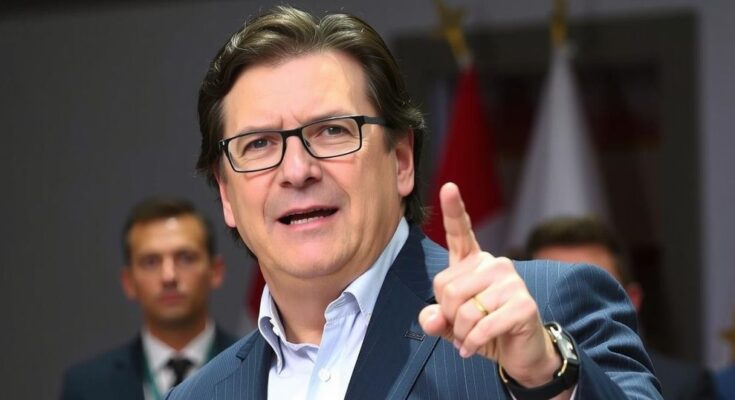Zoran Milanovic secured 49.1% of the votes in the first round of Croatia’s presidential election and will face Dragan Primorac, who received 19.35%. The runoff is scheduled for January 12. Milanovic extended a collaborative hand to the current government while highlighting his commitment to Croatian interests.
Zoran Milanovic, the current president of Croatia, has emerged as the frontrunner in the first round of the presidential election, securing 49.1% of the votes. Despite his strong performance, he did not achieve the necessary majority and will participate in a runoff against Dragan Primorac of the Croatian Democratic Union (HDZ), who garnered 19.35% of the votes. The second round is scheduled for January 12. Notably, independent candidate Marija Selak Raspudic placed third with 9.25% support.
While the presidency in Croatia is largely a ceremonial role, it carries significance in matters of foreign policy, defense, and security. Milanovic, representing the Social Democrats, is recognized for his criticism of the ruling government, yet he extended an olive branch, expressing his willingness to collaborate with the administration during this period of uncertainty. He stated, “I will fight for a Croatia with attitude … a Croatia which cares about its interests.” Despite tensions with Prime Minister Andrej Plenkovic and a history of clashes over both domestic and foreign policy, Milanovic’s appeal stems from a populist approach that resonates with voters who seek alternatives to the HDZ’ rule.
The electoral turnout stood at approximately 46% with around 3.8 million Croats eligible to vote across eight candidates. In the face of a divided right-wing voter base, Primorac sees the second round as an opportunity to consolidate support, presenting a platform focused on unity and improved living conditions for the populace. Milanovic’s tenure has seen criticism of the European Union and NATO’s involvement in Ukraine and a challenging political environment characterized by allegations of corruption within the HDZ government.
The presidential election in Croatia is an important political event, particularly given the country’s recent history of political strife and corruption scandals involving public officials. The presidency, while primarily ceremonial, plays a vital role in influencing the nation’s foreign policy and overall governance. Zoran Milanovic, a seasoned politician and former prime minister, represents a critical counterbalance to the current ruling party, the Croatian Democratic Union (HDZ), known for its strong control over the government. Milanovic’s presidency has been marked by public disputes with the HDZ and a penchant for outspoken criticism on various issues.
In conclusion, the Croatian presidential election remains a pivotal moment for the nation, with Zoran Milanovic leading the initial round but not achieving a majority. The upcoming second round against Dragan Primorac signifies not only a contest for leadership but also a broader electoral statement regarding governance amidst allegations of corruption and public discontent. Milanovic’s commitment to furthering Croatian interests and Primorac’s appeal for unity will play crucial roles in shaping Croatia’s political future.
Original Source: www.deccanherald.com




